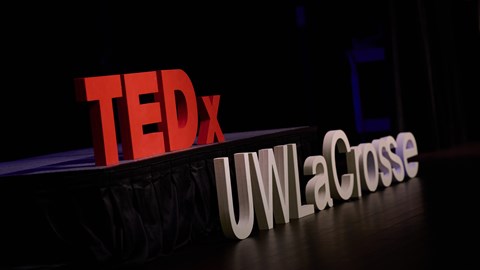Undergraduate programs
French
Undergrad major Undergrad minor Teacher licenseStudying any language helps students hone important skills that employers are seeking such as communication, teamwork, problem solving, leadership and intercultural competency.
French is the fifth most spoken language globally and the third most spoken language in the U.S. French is also one of the six official languages of the United Nations, making it important for global relations.
Areas of study
Business Concentration
The business concentration is focused on the study of French in professional business contexts, addressing written and oral conventions in business and other professional settings, as well as professional expectations across Francophone and Anglophone cultures.
Undergrad major View a sample plan for Business Catalogfor BusinessEducation
This major prepares students to teach French in grades K-12. Completion of the program and associated benchmark assessments will lead to endorsement for a Wisconsin Teaching License. Students in all teacher education programs must satisfy the School of Education (SOE) core requirements.
Undergrad major Teacher license View a sample plan for Education Catalogfor EducationEducation & Teaching English to Speakers of Other Languages
Completion of the French Education and Teaching English to Speakers of Other Languages Program and associated benchmark assessments will lead to endorsement for the following Wisconsin teaching licenses: French, grades K-12 (1355) and English as a Second Language, grades K-12 (ESL, 1395). Students in all teacher education programs must satisfy the School of Education (SOE) core requirements.
Undergrad major Teacher license View a sample plan for Education & Teaching English to Speakers of Other Languages Catalogfor Education & Teaching English to Speakers of Other LanguagesGerman Studies
Undergrad major Undergrad minorIf you want to work in government or do business in Europe, German is the language to know.
Germany is an economic powerhouse. The German economy ranks No. 1 in Europe and No. 4 worldwide. Use your German language skills to take advantage of numerous connections between businesses in Germany and Wisconsin.
German is also a relatively easy language to learn for English speakers because of the Germanic roots of English.
Areas of study
Business Concentration
With this business concentration, you’ll focus your German education on learning to communicate effectively in the business world.
Undergrad major View a sample plan for Business Catalogfor BusinessSpanish
Undergrad major Undergrad minor Teacher licenseSpanish is one of the fastest growing languages worldwide. Because of the prominence of this language, it is likely you will interact with Spanish speakers in your future. By studying Spanish, you will develop not only language skills to interact, but also cultural competency. These skills help you to work with people from other cultures more effectively and appropriately.
Areas of study
Education
Completion of the Spanish Education Program and associated benchmark assessments will lead to endorsement for a Wisconsin teaching license in Spanish for grades K-12 (1365). Students in all teacher education programs must satisfy the School of Education (SOE) core requirements.
Undergrad major Teacher license View a sample plan for Education Catalogfor EducationEducation & Teaching English to Speakers of Other Languages
Completion of the Spanish Education and Teaching English to Speakers of Other Languages Program and associated benchmark assessments will lead to endorsement for the following Wisconsin teaching licenses: Spanish, grades K-12 (1365) and English as a Second Language, grades K-12 (ESL, 1395). Students in all teacher education programs must satisfy the School of Education (SOE) core requirements.
Undergrad major Teacher license View a sample plan for Education & Teaching English to Speakers of Other Languages Catalogfor Education & Teaching English to Speakers of Other LanguagesChinese Studies
Undergrad minorMany people think that Chinese is a complex language to learn. However, from a grammatical standpoint, the language is relatively simple. Unlike many languages, Chinese has no verb conjugation, no gender or number agreement, and the same basic word order as English. Chinese characters are artistically formed and loaded with meaning, so the more you learn, the easier it becomes. If you know the most frequently used 600 Chinese characters, you can recognize 80% of Chinese words in daily life. If you know 1,000 characters, over 90% of words are covered.
Russian Studies Certificate
Undergrad certificateRussian is a Slavic language spoken by hundreds of millions of people. It is primarily spoken in the Russian Federation, commonly referred to as Russia, and throughout the former Soviet Union. Understanding of Russian language is valuable in the business and government sectors. Russia is a large country with vast natural resources and a history of innovation in science and technology. All these points make the understanding of Russian valuable to diverse employers doing business and government work globally.
Spanish for Business & Organizations Certificate
Undergrad certificateThe certificate pairs well with any UWL major, especially international business and other paths that include some experience abroad such as anthropology or geography.
Courses in the certificate are very practical. You will learn Spanish with a community of learners participating in high-impact practices such as service-learning, virtual collaborations with international students, internships abroad, educational trips and more.
Spanish for Health Professions Certificate
Undergrad certificateThe certificate is designed to accommodate the demands of the many health-related programs offered at UWL. Students complete 15-16 credits in Spanish and other disciplines that allow students to balance pre-professional programs with a certificate in a liberal arts discipline. All courses are designed so that students can immediately apply their language and cultural skills to a real-world setting.
Featured courses
Get assistance
Upcoming events
Latest news
 From classroom to career
Creative projects bridge language learning and professional success
From classroom to career
Creative projects bridge language learning and professional success
 Writing in Global Cultures and Languages
The Write Here, Write Now sheds light on writing lives in the UWL community
Writing in Global Cultures and Languages
The Write Here, Write Now sheds light on writing lives in the UWL community
 Learning and language
UWL's Hongying Xu shares expertise, best practices in two new publications
Learning and language
UWL's Hongying Xu shares expertise, best practices in two new publications















